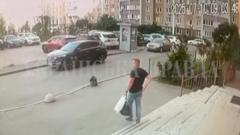This retrial brings to light complex issues surrounding Kim's motivations and the legacy of President Park Chung-hee.
**Retrial of Assassination: Revisiting the Legacy of a Divisive Spy Chief**

**Retrial of Assassination: Revisiting the Legacy of a Divisive Spy Chief**
The Seoul High Court retrials the actions of Kim Jae-gyu, a controversial figure accused of assassinating South Korea's authoritarian leader, sparking debate on patriotism and treason.
In a case that has polarized South Korea for decades, the Seoul High Court is poised to reevaluate the actions of Kim Jae-gyu, the former chief of the Korea Central Intelligence Agency (KCIA), known for the assassination of President Park Chung-hee in 1979. Kim's family is advocating for a retrial aimed at shifting public perception of his actions, which some consider treasonous while others view as a courageous move towards democracy.
The famed night of October 26 left an indelible mark on South Korea's history. Yoo Seok-sul, a former security guard at the KCIA, recalls the moment when the shots rang out. He was subsequently ordered to bury evidence of the assassination—two guns, bullets, and shoes—in the garden, unaware that the shots had killed Park, who had ruled the country with an iron fist for 18 years. In subsequent military trials, Kim was executed, labeled an insurrectionist by a regime that would later suppress pro-democracy uprisings.
Kim's assassination of Park occurred against a backdrop of political turmoil and unrest. His actions, seen by some as a desperate attempt to halt Park's increasingly dictatorial behavior, led to his execution and continued condemnation. However, a recent push for Kim's retrial has reignited discussions about his motivations and the legitimacy of his claims that he acted to safeguard South Korea's democracy from chaos.
As tensions rise regarding contemporary political issues, including the impeachment charges against President Yoon Suk Yeol, many believe that Kim's case could serve as a litmus test for modern South Korean attitudes towards democracy, authoritarianism, and the legacies of past leaders. Those supporting Kim contend that he was trying to prevent further violence and enhance political stability, while opponents argue that his actions constituted reckless ambition and betrayal. The upcoming retrial could reshape the narrative of what constitutes a hero or traitor in South Korea's tumultuous history.
The famed night of October 26 left an indelible mark on South Korea's history. Yoo Seok-sul, a former security guard at the KCIA, recalls the moment when the shots rang out. He was subsequently ordered to bury evidence of the assassination—two guns, bullets, and shoes—in the garden, unaware that the shots had killed Park, who had ruled the country with an iron fist for 18 years. In subsequent military trials, Kim was executed, labeled an insurrectionist by a regime that would later suppress pro-democracy uprisings.
Kim's assassination of Park occurred against a backdrop of political turmoil and unrest. His actions, seen by some as a desperate attempt to halt Park's increasingly dictatorial behavior, led to his execution and continued condemnation. However, a recent push for Kim's retrial has reignited discussions about his motivations and the legitimacy of his claims that he acted to safeguard South Korea's democracy from chaos.
As tensions rise regarding contemporary political issues, including the impeachment charges against President Yoon Suk Yeol, many believe that Kim's case could serve as a litmus test for modern South Korean attitudes towards democracy, authoritarianism, and the legacies of past leaders. Those supporting Kim contend that he was trying to prevent further violence and enhance political stability, while opponents argue that his actions constituted reckless ambition and betrayal. The upcoming retrial could reshape the narrative of what constitutes a hero or traitor in South Korea's tumultuous history.





















